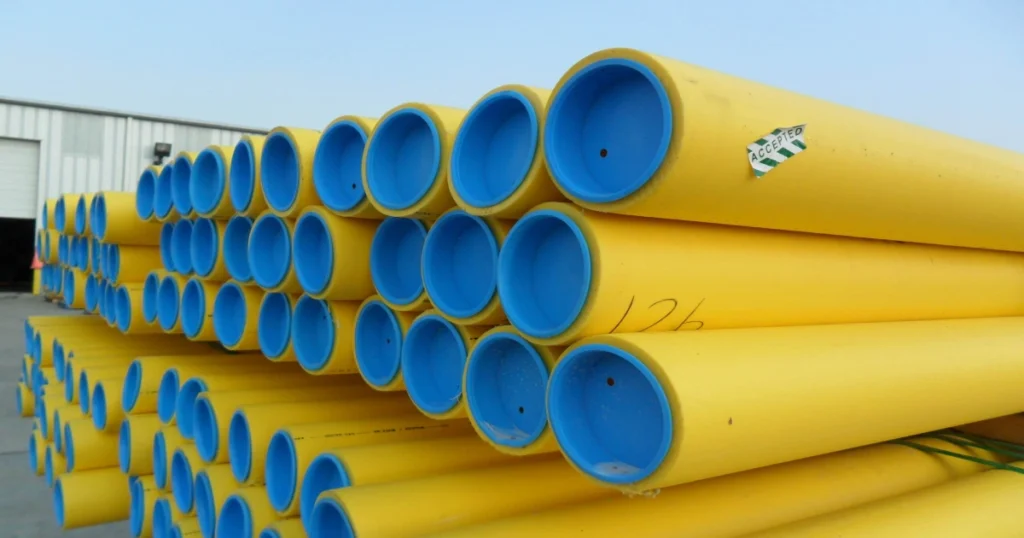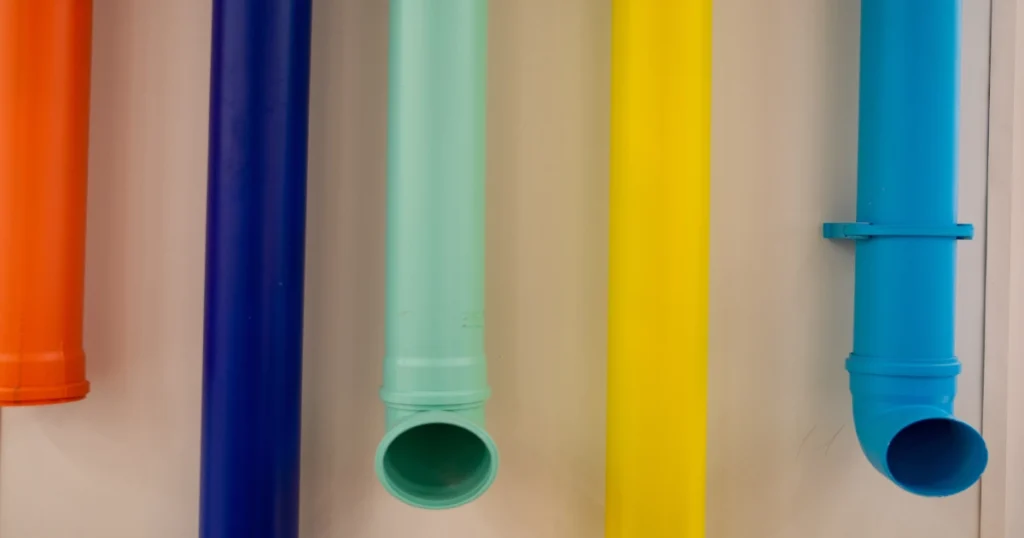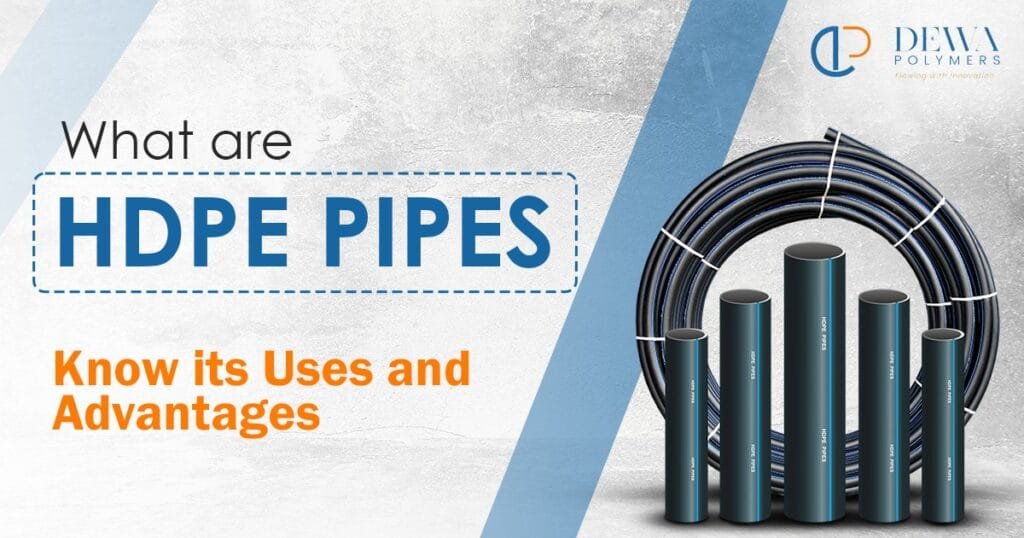Every city or place needs an efficient sewerage system to maintain public health and environmental sustainability. However, many areas are still lacking adequate drainage infrastructure. Consequently, leading to a host of waterborne diseases, structural damage, and environmental pollution.
In this comprehensive blog post, we’ll explore the crucial role of sewerage pipes, their advantages, uses, applications, and benefits. Therefore, we can comprehend the benefits of a robust sewerage system.
Understanding Sewerage Pipes
In broad terms, sewerage pipes are underground piping systems to transport wastewater and sewage from not only homes but also industries. Therefore, sewerage pipes are the backbone of modern infrastructure. Also, the prime objective of the sewerage pipes is to make sure that the sewage discharged from the communities is properly collected, transported, treated and then finally disposed of. Consequently, they play a critical role in public health and environmental sustainability.
Most Important Uses of Sewerage Pipes
Sewerage pipes are widely used in various applications. Therefore, by understanding the diverse applications of sewerage pipes, we can know the significance of sewerage systems in maintaining healthy environments:
Domestic Uses
- Sewerage pipes are commonly used to transport wastewater from homes and buildings to the municipality drainage system and further to sewage treatment plants. Therefore, they are the conduits that play a crucial role in taking away used water with toxins and preventing the spread of diseases. Consequently, HDPE (High-Density Polyethylene) pipes are suitable for lateral connections from homes to main sewer lines. Consequently, ensuring efficient wastewater collection and disposal.
- People use sewerage pipes to collect and store rainwater for catering to their domestic use. They further utilize the collected water for various uses like gardening, cleaning, toilet flushing and even for drinking after treatment.
- Sewerage pipes are a big help in managing wastewater disposal from sinks, toilets, and showers. Therefore, they ensure that the wastewater is properly disposed of or taken to recycling facilities. Therefore, ensuring proper sanitation and hygiene.
Commercial and Industrial Uses
- Sewerage pipes are utilised for handling wastewater disposal from offices, hotels, restaurants, and other commercial establishments. Therefore, keeping a clean and hygienic environment in these complexes and preventing contamination of water bodies nearby.
- Sewerage pipes also help in managing wastewater disposal and transportation from factories, manufacturing plants, and other industrial site to treatment facilities. Sewerage pipes made from HDPE (High-Density Polyethylene) pipes are used in limited gravity flow areas for force mains. Consequently, they help to pump wastewater to higher elevations or treatment facilities.
- Therefore, they help to ensure that these establishments adhere to compliance with environmental regulations.
- They also have an important part in the collection and diversion of stormwater runoff. Therefore, sewerage pipes help reduce flooding and water pollution.
Municipal Uses
- Well-constructed sewerage pipe systems help to efficiently transport wastewater from residential, commercial, and industrial complexes to treatment plants. As such HDPE (High-Density Polyethylene)pipes are suitable for sewer lines. Therefore, helping in transporting wastewater from residential, commercial, and industrial areas. Consequently, they are essential partners in safeguarding public health and the environment.
- Sewerage pipes help in the treatment of wastewater on-site in areas without any centralised sewer systems.
Applications of Sewerage Pipes
Sewerage pipes are the hidden warriors of modern infrastructure in cities and towns. Also, these silent workers ensure public health and environmental sustainability and are used in various applications.
Domestic Sewage Systems Applications
- Sewerage pipes help in transporting wastewater from homes and buildings to sewage treatment plants. Therefore, they help to dispose of toxic wastewater and indirectly prevent epidemics and diseases.
- They are used in the collection and storage of rainwater. Therefore, these pipes play a part in water conservation. Consequently, helping to reduce dependence on municipal water supplies.
- Sewerage pipes help in domestic disposal systems by flushing wastewater from sinks, toilets, and showers in homes, hospitals, and hospitality industries.
Applications in Commercial and Industrial Sewage Systems
- Sewerage pipes are very essential in commercial and industrial establishments. These establishments produce wastewater on a large scale. Therefore, an efficient sewerage system helps in handling wastewater from offices, hotels, and commercial hubs promptly. Therefore, preventing contamination of nearby water sources and keeping these places clean and hygienic.
- These pipes manage to dispose of industrial wastewater from factories, manufacturing plants, and industrial facilities. Therefore, ensuring environmental compliance.
- Sewerage pipes manage stormwater drainage. Therefore, sewerage pipes help prevent urban and suburban flooding and soil erosion.
Applications in Municipal Sewage Systems
- Sewerage pipes play a vital role in transporting wastewater from urban and suburban areas to treatment plants. These include residential, commercial, and industrial areas. Therefore, safeguarding public health and the environment.
- The sewerage pipes also help control stormwater runoff. Therefore, reducing the flooding and water pollution in cities.
- Sewerage pipes help in areas that lack centralized sewer systems. Therefore, sewerage pipes are used in septic systems to treat wastewater.
- Sewerage pipes made from HDPE (High-Density Polyethylene) are suitable for creating manholes, risers, and other components of the sewerage system. Thus providing a durable and corrosion-resistant solution for sewerage systems in cities for hygienic environments.
Advantages of Sewerage Pipes
Sewerage pipes are the dark horses of our essential infrastructure elements. Also, they offer numerous benefits to communities.
Key advantages of sewerage pipes:
Public Health
- Well-functioning sewerage pipes help in effectively removing wastewater from homes and communities. Consequently, helping to prevent waterborne diseases, including cholera, typhoid, and dysentery from spreading.
- Proper sewage disposal systems have an important role in promoting better hygiene and sanitation practices in society. Therefore, they help communities to lead healthier lives. Also, sewerage pipes are highly essential in hospitals and other medical facilities to dispose of medical wastewater safely.
Environmental
- Sewerage pipes help to reduce water pollution. Additionally, they help prevent untreated wastewater from seeping or entering water bodies by conveying such toxic water to designated treatment plants.
- Sewerage pipes help foster efficient drainage systems. Therefore, helps to prevent soil erosion and protect natural ecosystems.
- Sewerage pipes ensure that the agricultural lands are not contaminated with toxic water. Therefore, ensuring that crops are disease-free and yield better.
Economic
- An efficient and well-functioning sewerage pipes system helps to increase the property value of houses, apartments and commercial complexes by ensuring a hygienic living environment.
- Therefore, sewerage pipes indirectly boost proper sanitation infrastructure attract investments and drive economic growth.
- You can save money if you keep your drainage and sewerage system clean. Also, regular cleaning prevents property damage, keeps your home healthy, and prevents pest infestations. Therefore, you don’t have to pay for costly plumbing repair bills.
Practical
- Sewerage pipes play an effective role in controlling and removing foul odours. Therefore, they help to improve the quality of life in communities.
- They indirectly help to control pests by eliminating standing wastewater and food sources for pests. An efficient sewerage system takes care of drain water disposal and thus helps to eliminate mosquito infestation.
Key Benefits of Sewerage Pipes
Traditional sewerage pipes are made from materials like cast iron or concrete. Sewerage pipes that are made from High-Density Polyethylene (HDPE) pipes are superior and sustainable solutions for modern sewerage systems and offer various benefits:
Key Benefits:
- Strong and Durable: These pipes can withstand the harsh conditions in sewerage systems. Also, they are resistant to corrosion, abrasion, and root intrusion. Therefore, ensuring long-term performance and reducing frequent repairs.
- Lightweight: HDPE sewerage pipes are lighter and easier to transport and install. Therefore, reduces labour costs and accelerates project timelines.
- Chemical Resistance: Sewerage pipes made from HDPE have excellent resistance to acids, alkalis, and solvents.
- Flexibility: HDPE sewerage pipes are flexible, and can be installed in challenging terrains or around obstacles. Therefore, they offer reduced excavation costs and minimise disruption to the environment.
- Non-Conductive: They are non-conductive, making them suitable for underground installations or environments with potential electrical hazards.
- Recyclability: They are recyclable contributing to a more sustainable future.
Conclusion
Sewerage pipes are the hidden heroes of modern society. However, these warriors work behind the scenes. Therefore, ensuring the well-being of our environment and communities. Additionally, sewerage pipes have a vital role in sanitation and preventing the spread of diseases in homes and public places. Therefore, we should never underestimate the role and power of sewerage pipes in our lives.
If you are working on your infrastructure project, you can consider exploring DEWA Polymers for the best quality sewerage pipes. Also, the range of products is engineered to last. For inquiries, call +91-9859920603 or browse our website.
Frequently Asked Questions (FAQs)
What are Sewerage Pipes?
They are underground pipe networks to transport wastewater away from residential, commercial, and industrial areas for disposal.
Why are Sewerage Pipes Important?
Sewerage pipes are important for the following reasons:
Preventing the spread of diseases through water.
Reducing water pollution and protecting the environment
Enhancing property values by improving sanitation.
Fostering economic growth and attracting investments.
What Materials are Used for Sewerage Pipes?
The materials used for sewerage pipes are:
PVC (Polyvinyl Chloride) is lightweight, durable, and corrosion-resistant.
Clay Pipes a traditional material, known for its strength and durability.
Concrete Pipes are heavy-duty pipes suitable for large-scale projects.
Cast Iron Pipes are durable but susceptible to corrosion.
How Often Should Sewerage Pipes Be Inspected?
Sewerage pipes should be inspected regularly. However, the interval of inspections may vary depending on the age of the pipes, regulations, and usage.
What are the Signs of a Damaged Sewerage Pipe?
Signs of damaged sewerage pipes are:
Water takes longer to drain.
Unusual noises.
Foul smells.
Wastewater backing up.
Cracks or breaks
How Can I Maintain My Sewerage System?
You can maintain the sewerage system by:
Keeping non-flushable items out of the toilet.
Regularly cleaning drains and pipes.
Scheduling inspections.
Taking measures to prevent damage to pipes.
Reducing water usage to reduce the strain.
What are the Environmental Impacts of Poor Sewerage Systems?
Environmental consequences include:
Wastewater contamination of waterbodies and land thereby harming aquatic life and endangering human health.
Sewage pollution leads to soil degradation and groundwater contamination.
The release of harmful gases into the atmosphere.
What are the Future Trends in Sewerage Technology?
The future trends of sewerage technology are:
Application of modern sensors to optimize system performance.
Using eco-friendly materials and construction techniques
Recycling and reuse of wastewater for various purposes.
Green roofs and rain gardens to manage stormwater.










